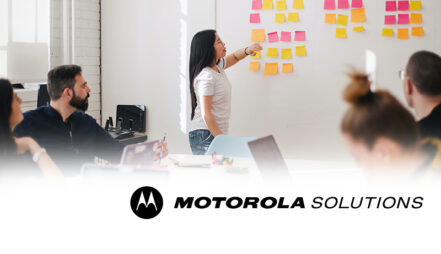2 December 2021
Company without barriers – including for individuals with disabilities
We work in various environments, speak various languages, often represent various viewpoints and all of us have their own specific, individual needs. This creates a significant challenge for employers to create an inclusive workplace that meet the needs of employees, offering them equal treatment and development opportunities. This is relevant – among others – for individuals with disabilities.
According to the Research of Economic Activity of Population (BAEL) in the first quarter of 2020 the employment rate among working age fully-able population stood at 78.4 per cent while only 28 per cent working age individuals with disabilities were economically active in the same period. It’s worth to ask the question about the source of this considerable disproportion given that according to a report titled ‘Pracodawca na TAK’ published in 2021 60 percent of employers believe that today’s labour market is very open to individuals with disability certification?
.
The above-mentioned publication provides insights into the key obstacles in hiring individuals with disabilities according to employers, including lack of experience in working with employees from this group (64 per cent), concerns about lower productivity (56%) and limited knowledge regarding benefits related to employing people with disabilities (44%).
.
However, I believe these challenges do not require significant resources to be addressed. We fear what we do not know, therefore disability in the workplace needs to be normalized. The best way to start is to learn the basics.
.
With disability in a workplace
.
To start with, I’m recommending to employers to make sure they’re familiar with legal aspects of employing a person with disability, for example shortened working hours, additional holidays or special leave dedicated to rehabilitation or medical check-ups. An example of a best practice is learning about various disability types, how they may impact company’s operations and what needs they create.
.
This knowledge can be obtained individually or with professional support from external subject matter expert. Our foundation provides dedicated trainings to people leaders, focused – among others – on recruiting individuals with disabilities or savoir-vivre that help create an inclusive workplace. This knowledge will make a big difference – the feeling that we know how to behave or act properly gives us confidence and sense of control. It makes understanding the challenges an employee is facing and taking about their needs easier.
.
Adaptation
.
Many employers are concerned that their office space won’t fully meet the needs of employees with disabilities fully. To identify strengths and weaknesses of their premises in terms of supporting employees with various ability levels, employees may reach out to professional auditors who’ll help to examine if the building and its surrounding is aligned with the needs of individuals with disabilities and assess commuting and digital accessibility. The audit will help identify areas for improvement.
.
In many cases the office space only requires small adjustments, for example adding desks with adjustable height or removing barriers for individuals using wheelchairs from the corridors. At the same time employers of individuals with disabilities can apply for subsidies to help them fund the adjustments to workstations and premises. For more information, I recommend employers explore resources available on dedicated websites, such as Aktywizuj.pl (section: “Dla pracodawcy”) or dostepnosc24.pl.
.
Employment
.
In my opinion, knowledge and audit results create a solid base for further actions. While getting ready to welcome a team member with disability, an important thing to consider is preparing an offer. One of the questions that may appear in hiring managers’ and recruiters’ minds is how to make it clear in the job advertisement that you’re open to candidates with disabilities? It’s enough when you add the following sentence: “Our office is fully aligned with the needs of individuals with disabilities”.
.
Candidates are not obliged to include information about their disability in their CV. It’s solely up to the individual if they want to inform their employer about it and use relevant relieves and entitlements.
.
During the job interview interviewers mustn’t ask about disability. It’s ok, though, to ask about to-date professional experience, teamwork, individual and specific needs that require employer’s support to enable the candidate to effectively deliver once employed.
.
There are loyal and competent employees among individuals with disability certificate. I encourage employers to look for them and hire them. Poland Business Run Foundation is sharing the tips on how to do it during trainings and audits from ‘Company without barriers’ (‘Firma bez barier’) series. We would be delighted to deliver these for your company if you’re interested.
.
ABOUT THE AUTHOR

Managing Director, Poland Business Run Foundation
Marta has been invited to share her thoughts on this platform by Standard Chartered, the strategic sponsors of Poland Business Run in 2020 and 2021. She is the managing director of Poland Business Run Foundation. She’s an educated educator and social activist by nature. Since the beginning of her professional career she has been working in the NGOs sector, designing and implementing social projects focused on people at risk of exclusion. For the last 6 years she has been leading Poland’s biggest charity run (Poland Business Run) and – though the foundation’s projects – has been making a difference in activisation and social integration of individuals with disabilities. She’s keen on sharing her knowledge and experience, which she does though regular lectures at AGH University of Science and Technology in Cracow and trainings that are part of ‘Company without barriers’ (‘Firma bez barier’) project.
.
Linkedin profile: https://www.linkedin.com/in/marta-hernik/
.
To find out more about Poland Business Run Foundation, visit the website.



